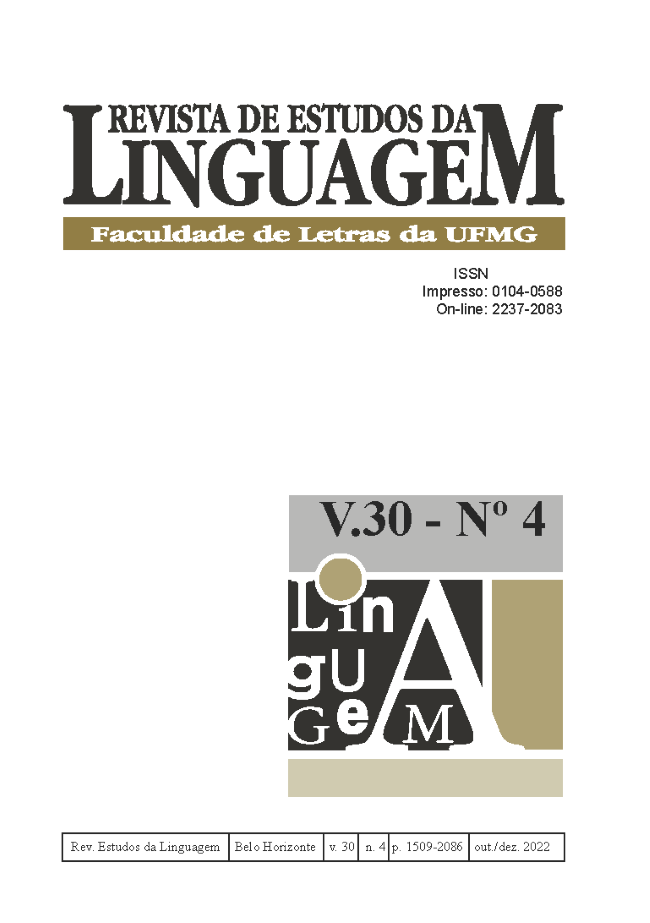Posição dos adjetivos nos gêneros cartas e narrativas em Português Europeu do século XVII ao XIX
DOI:
https://doi.org/10.17851/2237-2083.30.4.1688-1718Palabras clave:
sintaxe dos adjetivos, diacronia, adjetivos avaliativosResumen
O trabalho analisa diacronicamente a sintaxe de adjetivos adnominais no português europeu dos séculos XVII e XIX. Para isso, utilizamos dados anotados sintaticamente e morfologicamente, presentes no Corpus Histórico do Português Europeu, do Projeto Tycho Brahe. Ao todo, foram analisadas cinco cartas e quatro narrativas escritas por autores nascidos entre o século XVII e XIX, o que resultou, após verificação manual dos dados, em 7.996 dados válidos. Nossa hipótese foi de que a mudança da posição preferencial de adjetivos avaliativos (da anteposição para a posposição) poderia ser observada primeiro em gêneros textuais mais próximos da oralidade e da informalidade, como a carta, e que tal mudança não ocorreria da mesma forma para sintagmas definidos e indefinidos. Os resultados confirmam a hipótese de que há, de fato, diferença no comportamento dos adjetivos quando olhamos para gêneros textuais distintos e para determinantes diferentes. Por fim, trazemos uma análise qualitativa de duas cartas, uma do século XVII e outra do XIX, a fim de avaliar a ocorrência de tipos de determinantes, tipos de adjetivos e tipos de nomes em conjunto. Os resultados mostram uma preferência pela anteposição dos adjetivos avaliativos em contextos de determinante definido e nomes contendo traço [+humano] tanto no século XVII quanto no XIX, mas preferência pela posposição nos contextos de determinante indefinido e nome [+humano] para o mesmo recorte temporal. Ainda, vemos também um aumento no uso de adjetivos não avaliativos, que acaba por favorecer desproporcionalmente a posposição.





